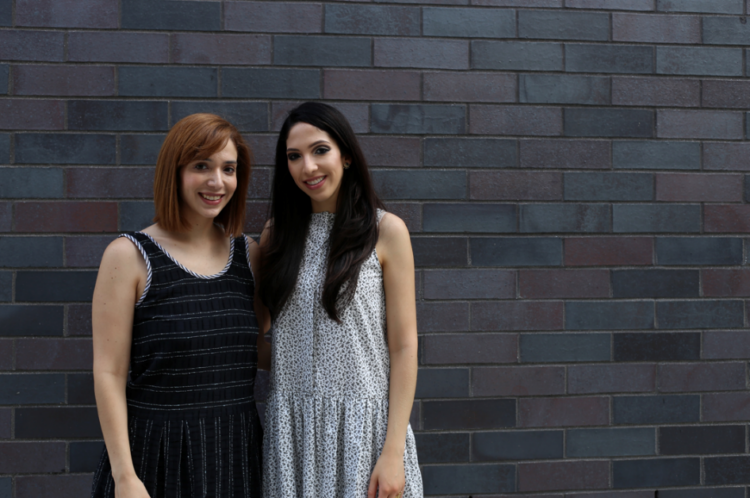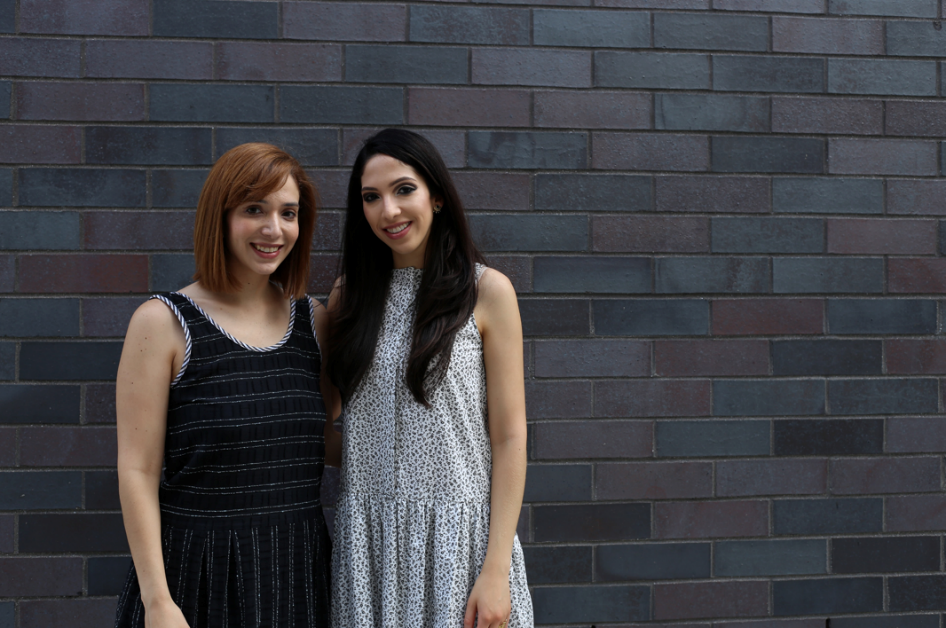We went one-on-one with Carolina Cantor, co-founder of Shop Ethica to see what we can learn from her online commerce strategy:
Shop Ethica, brings conscious style with a high-impact twist to your everyday occasion. Shop Ethica connects “consumers and companies that share a commitment to social and environmental responsibility,” and features styles by emerging designers who use sustainable or vegan materials, made in the USA, handcrafted, and trade not aid. The creative duo behind Shop Ethica are the Cantor sisters, Melissa and Carolina, originally from Honduras, now in New York City passionately curating some of the world’s most inspired chic when it comes to ethical and sustainable fashion.
With so many online destinations for shopping 24/7, Shop Ethica has managed to hit the sweet spot when mixing business, fashion, and global responsibility. Now they are sharing their advice and insights with all of us, this is their story:
1. Tell us about the vision behind Shop Ethica and what inspired you to launch this idea?
When we launched almost two years ago, there was no multi-brand site where women could shop all the best ethical and sustainable fashion labels, while also learning about how to make more socially and environmentally friendly choices. We wanted to curate a great shopping experience consisting exclusively of ethical and sustainable brands, and to bring the stories behind these brands to life through a strong storytelling component.
We felt strongly that this shift in the fashion industry had to happen eventually, and since no one else was doing what we envisioned, we were inspired to act to fill that market gap.
- How did you take this idea to reality? Can you share some of the steps leading up to your launch?
Leading up to our launch, the buying, photography, graphics, home page modules, editorial and fashion features all had to be produced within a couple of months. What’s daunting about being live is that you don’t get to take to several months to update and refresh all of that content.
One of the most important things we did was set a launch date and stick to it. We’d heard a lot about entrepreneurs who want to continuously fine-tune and delay the launch of their product more and more. The truth is, is that there is so much more that you learn by being live in the beta stage, and we think it’s more important just to get it up and running, then improve from there.
- What are some of the best practices when running an eCommerce Site?
Having a separate mobile site or optimizing your site for mobile, optimizing your website for SEO, fulfilling orders as quickly as possible, providing excellent customer service, and developing a consistent identity, both visually and in terms of the written content that people associate with your store (a style of photography, a voice, etc.)
Also having a digital marketing strategy in place, because it’s tempting to think that if you create a good product people will find you. However online sales are very competitive and it often takes a series of strategic moves to convert and engaged visitors into paying customers. Keeping the site fresh, by updating the product, images and content regularly, is also important. So is staying top of mind with your audience through social channels, newsletters and ads. - Can you tell us about the eCommerce technology you use and its benefits?
We use a platform called VAE. It’s a lesser-known platform, which can make integrations a bit complicated, but it also allowed us to bring the website to life very close to the way we had imagined it in terms of both design and functionalities. The back-end – which spans the CMS, the storefront, analytics and even newsletter capabilities within a single platform – is also fairly intuitive and easy to use. - What do you believe is the best payment platform and why?
We use authorize.net to process domestic and international credit and debit cards. It’s the only payment platform we’ve used to date, but so far, so good. - How do you manage customer service?
Our customers are often surprised that we manage much of the customer service directly, but this aspect is so important to us. People have so many options about where to shop, and we really value the people who support us, the designers we work with, and the cause that we’re all working toward. The least we can do on our end is ensure that they have the best experience we can provide. - How do you track the success of your store?
There are several factors that we take into account when measuring the success of our store. Sales is obviously a key metric for e-commerce. Fashion is very cyclical, so we measure an item or a collection’s performance within each given season. The return rate is also important—ours is low compared to other e-commerce sites, so we think we’re doing a pretty good job in terms of showing and describing our products. We also track engagement on the site, and we’ve noticed our customers tend to stay on for quite some time, which is great!
Tracking various metrics in the analytics is very important, but we also take into account the qualitative data, such as customer feedback. We really appreciate when customers take the time to let us know what they thought of the shopping experience and the item they purchased, or didn’t purchase and why.
- How do you handle returns?
We accept returns on unworn merchandise within 21 days. - What do you believe makes up a vital team when launching a style driven eCommerce site?
Creative director, buyer/fashion director, and developer/CTO/Co-founder. - What’s one piece of advice you can give to Open Source Fashion Readers who aspire to launch their own eCommerce fashion store.
The one thing we didn’t quite realize prior to launch is that e-commerce stores are expected to be open 24/7. We understood this conceptually, of course, but if you’re a solo operation or a family business, it becomes fairly difficult to go on vacation – at least at the same time. Someone has to be available to process orders, ship out packages, respond to customer inquiries, etc. It becomes easier once you can outsource some of those services, but it’s definitely not like a brick-and-mortar store when you can just hang a “Closed” sign on the door for a few days during the holidays. It’s certainly something to think about if you’re someone who travels a lot, and don’t have someone who would be able to fill in for you and man the shop. - What’s next for Shop Ethica?
We’d love to do some more live events throughout the country, and have the opportunity to interact with more of our customers firsthand. We’ve also been adding some wonderful brands to our roster and expanding the choices for shoppers looking for responsibly made fashion. We’re in the midst of a few collaborations with some fantastic photographers and stylists as well. Also talks have started about the possibility of developing our own collection down the line.




